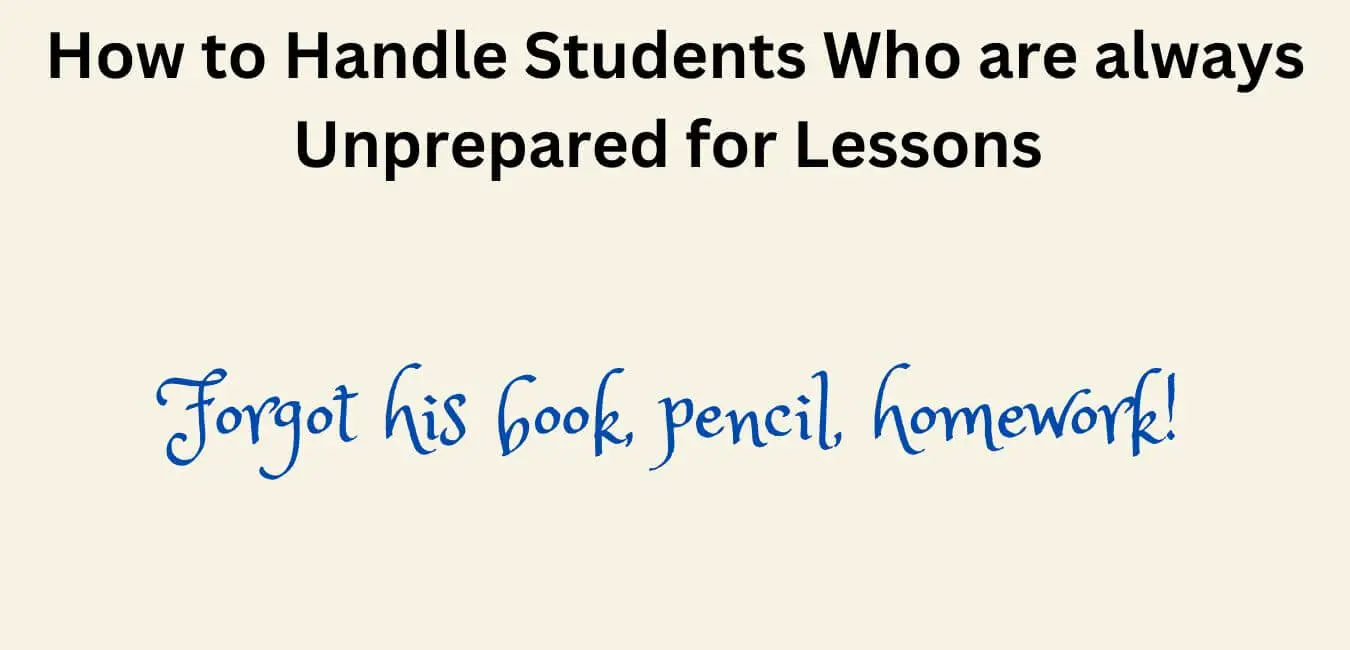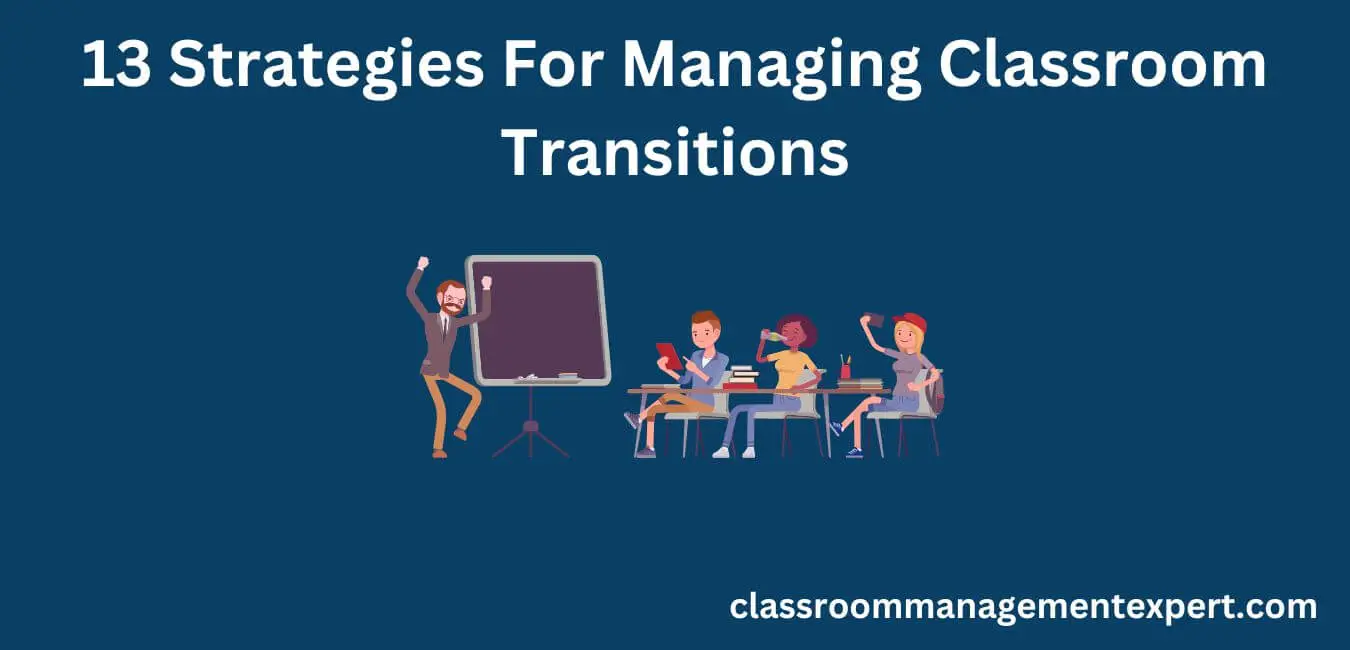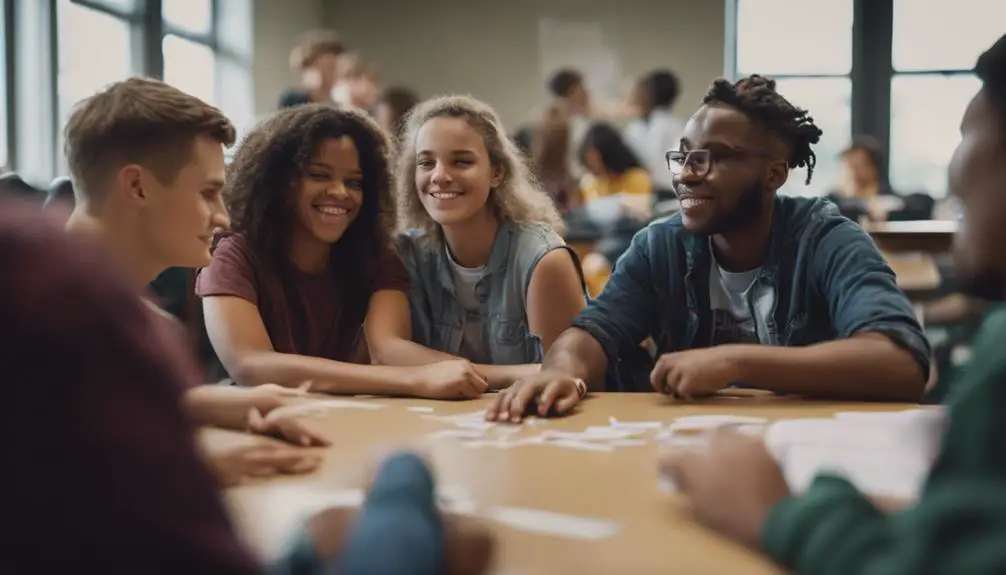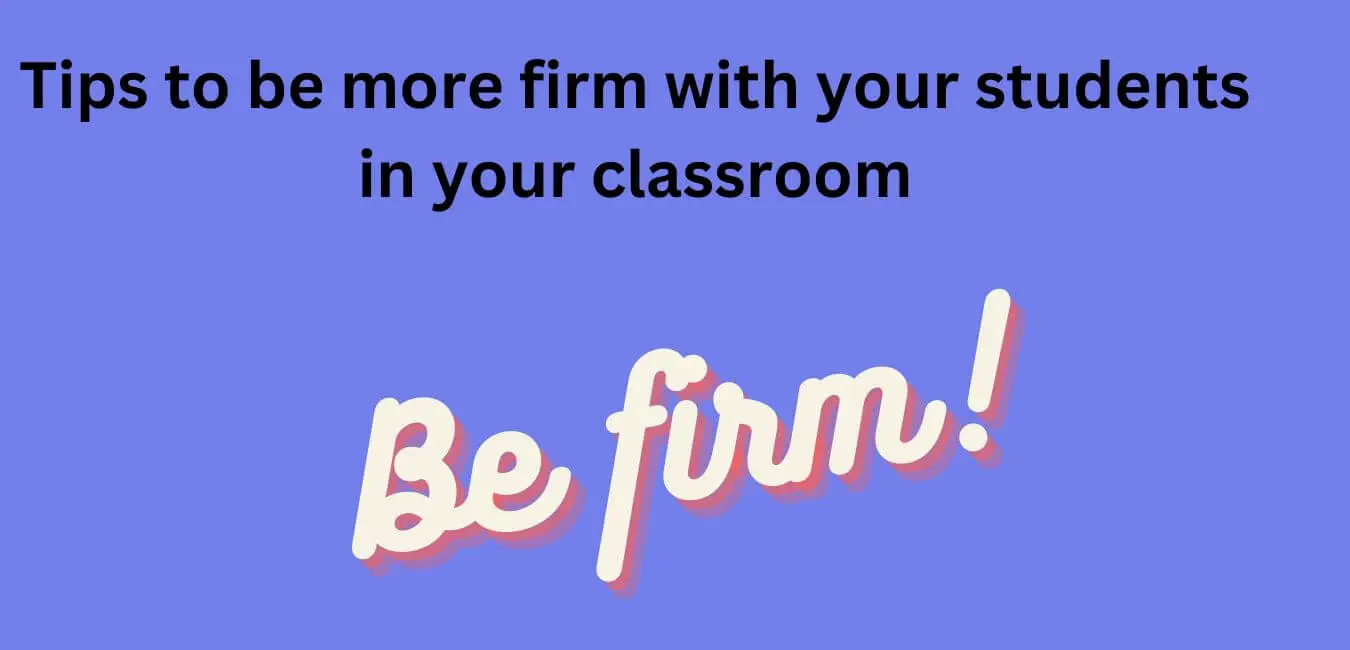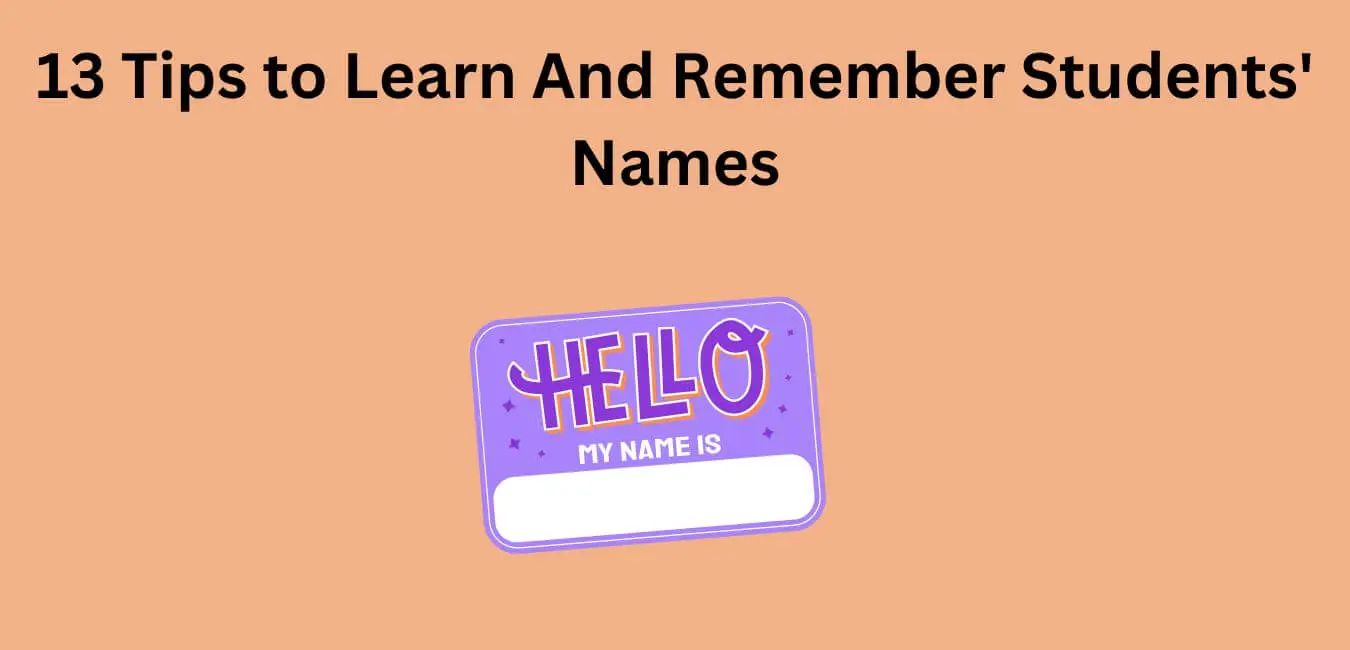It can be discouraging to have students who are constantly unprepared for lessons and studies. As a teacher, it’s your responsibility to ensure that all of your students are prepared for their studies and able to make the most out of their time in class.
To help you manage this situation, here are 15 tips to help you handle students who are always unprepared for lessons and studies.
Strategies to Help You Handle Students Who are Always Unprepared for Class
1. Clarify Expectations
It is important to ensure that your students understand the expectations for each lesson and assignment. This can be achieved by clearly outlining goals and expectations in each lesson plan.
You can also let students know what is expected of them by providing them with a syllabus. If there are any changes or updates, you should make sure to communicate them to your students.
Additionally, it is important to provide feedback on the work completed, so students understand the areas that need to be improved upon.
2. Set Consequences
When students are unprepared, it’s important to make sure they are aware of the consequences of their actions.
It’s best to be proactive and make sure that expectations and consequences are clarified at the beginning of the school year.
Make sure all students understand the rules and regulations and make sure that there are clear consequences for not meeting expectations.
It’s important to remember to be consistent and fair when setting consequences, and to be clear and concise when communicating them to the students.
Remind students that their actions have consequences and that there will be repercussions for not meeting expectations.
This will help to ensure that students are held accountable for their actions and will help them understand the importance of being prepared.
3. Reduce Anxiety
When dealing with students who are always unprepared, it’s important to reduce their anxiety so they can focus on becoming better prepared.
Try to create a calm and relaxed atmosphere in the classroom and allow students to take regular breaks. Encourage your students to practice mindfulness and relaxation techniques such as deep breathing or progressive muscle relaxation.
You can also provide resources to help students manage their stress, such as online resources or books.
This can help them learn to manage their stress levels in a healthy way and reduce the overwhelm that can lead to unpreparedness.
4. Be Organized
An organized teacher is the key to helping students who are often unprepared. Providing a clear and consistent structure is valuable for students who struggle with organization.
Modeling effective organizational skills can help students learn how to plan, prioritize, and budget their time. Create an organized environment in the classroom, such as by assigning students to specific seats and having a visible daily schedule.
Help students create a personalized system for tracking assignments, due dates, and test dates. It also helps for teens to make prioritized daily to-do lists, and to study and do homework in a well-lit, quiet, orderly workspace.
You can also offer tips for organizing digital files, such as setting up a filing system on the computer or using time-management apps.
5. Tailor Your Approach
As a teacher, it’s important to tailor your approach to each student’s individual needs. Every student is different and has different skills, abilities, and needs.
It’s important to recognize these differences and create strategies that will help each student succeed.
For example, if a student is having difficulty understanding a certain concept, try to explain it to them in a different way or provide them with additional resources to help clarify the concept.
Additionally, when teaching new material, provide visual aids, use hands-on activities, and provide step-by-step instructions.
These techniques can help make the material more accessible and easier to understand for those who are unprepared or struggling to keep up.
6. Provide Resources
Providing resources is key to helping underprepared or unprepared students. Identifying the appropriate resources can help ease the burden of their studies.
For example, you can provide students with a list of useful websites and websites that offer free tutorials. You can also provide them with access to physical materials, such as textbooks and study guides.
Additionally, consider creating a library of resources that students can access for additional help and guidance.
By giving students the right resources, you are equipping them with the tools they need to succeed.
7. Offer Flexibility
It’s important to be flexible with students who are unprepared or underprepared for lessons. Every student learns differently and may need a different approach to understanding the material.
Offering flexibility allows students to take a different approach that works better for them. For example, you can give students a choice of topics to write about, or allow them to work on practice problems in a way that makes sense to them.
This allows them to stay engaged and motivated to learn. Additionally, if a student is having difficulty understanding a concept, you can offer alternative ways of explaining it that better fit their learning style.
Offering flexibility can also include providing extra time for assignments or tests, so students have more time to prepare and understand the material.
By being flexible, you can help students become more confident in their skills and more successful in their studies.
8. Encourage Self-Reflection
One of the best ways to help students who are always unprepared is to encourage them to take time for self-reflection.
Asking questions such as “What do you think you could do differently in order to be more prepared?” can help the student to think critically about their own actions and create a plan of action for himself or herself.
You may also want to assign a reflection activity or journaling exercise to help the student think through what they need to do to be better prepared.
This type of self-reflection can help a student take ownership of their own education and better understand how to succeed in the classroom.
9. Create a Supportive Environment
Creating a supportive environment is an important step in helping students who are always unprepared for lessons and studies.
To do this, teachers should provide an atmosphere that is free of criticism and judgment. Encourage your students to learn by providing positive reinforcement and encouragement instead of negative feedback.
Let them know that you are there to help if they are struggling with understanding the material. You can also remind them that everyone makes mistakes and that you are there to help them learn from them.
Additionally, allowing students to work collaboratively with their peers can help to create an environment where students feel comfortable and supported.
This can help to foster a sense of community and promote learning. Finally, providing students with access to resources, such as tutoring and study materials, can help to ensure that they have the necessary tools to succeed.
10. Utilize Technology
Utilizing technology can be an effective way to reach students who are unprepared or underprepared for lessons and studies.
Utilizing technology in the classroom can help engage the students in the learning process and keep them focused. Technology can also help teachers create interactive activities that can help their students stay engaged and motivated.
Technology can also help students gain access to resources and materials that can help them understand the topics more easily.
Additionally, technology can provide visual and audio cues to help students understand the concepts better.
Finally, technology can be used to track the progress of each student, which can help teachers quickly identify and address any problem areas that may be hindering the student’s learning.
11. Reward Progress
Rewards can be an effective way to motivate students who are always unprepared for their lessons and studies.
By rewarding progress and improvement, you can encourage students to work harder and strive for better results.
However, be sure to use rewards that are meaningful and relevant to the individual student. For example, if a student excels at writing, celebrate their progress by providing them with a special writing tool, such as a fountain pen or personalized stationery.
If a student loves to read, reward them with a special book. By providing rewards that match the student’s interests, you can better motivate them and encourage them to continue striving for success.
12. Establish Communication
Communication is essential when dealing with students who are unprepared for their lessons or studies.
Establishing open, respectful communication between yourself and your students is the best way to help them become more organized and prepared.
Encourage your students to talk to you if they have any issues or questions that are preventing them from being prepared. For example, if they are struggling to understand something, they can come to you for help.
Additionally, it can be helpful to check in with your students regularly. This can help to ensure that any issues are addressed in a timely manner and that your students won’t fall behind.
Additionally, it can help foster a trusting relationship between you and your students, which can in turn help them become more organized and prepared.
13. Incorporate Fun Activities
It’s important to not always be in a serious mode when teaching your students. Incorporating fun activities in your lessons can help keep your students engaged, motivated, and interested.
Not only will this encourage more participation from your students, it can also help build a more positive and friendly atmosphere in the classroom.
Fun activities can also help break up the monotony of lectures and studying, and can help students better understand the material.
Try to find activities that are tailored to the subject you are teaching, and that can help foster collaboration and discussion among your students.
This can be a great way to build relationships with your students and keep them interested in learning.
14. Build Relationships
Building a strong relationship with your students is essential for both their learning and emotional development.
It’s important to take the time to get to know your students, their interests, and their learning style. Make sure to create an environment where students feel comfortable and respected.
Try to find a way to engage with students in a meaningful way. Invite them to share their experiences, struggles, and successes.
Find out what motivates them and help them find a purpose in their learning. Show your students that you care about their success, and foster an atmosphere of trust.
This will help your students feel more comfortable and open to learning.
15. Utilize Groups
Group activities can be an effective way to help students who are often unprepared for lessons and studies.
When students work together in groups, they have the opportunity to share resources, ask questions, and learn from each other.
This can help build a sense of community and encourage students to take responsibility for their own learning.
Group activities also provide an opportunity for students to practice problem-solving and collaboration skills, which can be invaluable when tackling challenging assignments.
Reasons why you should pay attention to students who are always unprepared for lessons
It’s important to pay attention to students who are always unprepared for lessons in your classroom for seven reasons.
1. These students may not have access to resources that many other students do, such as textbooks or internet access.
2. These students may have learning difficulties that require specialized instruction or support.
3. They may be dealing with personal or family issues that are preventing them from focusing on their studies.
4. They may be struggling to keep up with the pace of the lesson or lack the confidence to participate.
5. They may not understand the material being taught and need additional help.
6. They may be bored or unmotivated due to a lack of engagement with the lesson material.
7. They may feel isolated or be facing social pressures that are distracting them from their studies.
By paying attention to these students and understanding their individual needs and challenges, you can create an environment in which all students have the opportunity to succeed.
Conclusion
In conclusion, there are many strategies that can be employed to help teachers handle students who are always unprepared for lessons and studies. From encouraging a positive learning environment to providing adequate resources and opportunities for practice, these 15 tips offer useful advice on how to engage students in the learning process. Ultimately, it is up to the teacher to decide which techniques will work best in their classroom. With dedication and patience, teachers will be able to help their students reach their full potential.

